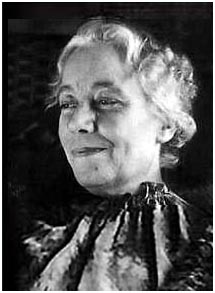Womb envy
A psychoanalytic concept introduced by Karen Horney
Womb envy is a term in psychoanalysis coined by the German psychoanalyst Karen Horney in 1938. It refers to the envy that some men may feel towards women's biological functions, particularly their ability to bear children. This concept was developed as a counterpoint to Sigmund Freud's theory of penis envy, which suggested that women experience envy towards men for their possession of a penis.
Conceptual Development[edit | edit source]
Karen Horney introduced the concept of womb envy as part of her critique of Freud's theories on female psychology. She argued that Freud's ideas were overly focused on male perspectives and did not adequately account for the female experience. Horney suggested that men might experience feelings of inferiority or inadequacy due to their inability to participate in the creative and nurturing processes of pregnancy and childbirth.
Horney's theory posits that womb envy could manifest in various ways, including the devaluation of women, the overemphasis on male achievements, and the creation of cultural and social structures that limit women's roles. She believed that these manifestations were attempts by men to compensate for their perceived lack of biological creativity.
Comparison with Penis Envy[edit | edit source]
Womb envy serves as a counterpart to Freud's concept of penis envy. While penis envy suggests that women feel incomplete or inferior due to their lack of a penis, womb envy implies that men may feel a similar sense of incompleteness due to their inability to bear children. Horney argued that both concepts highlight the psychological impact of gender differences and the societal values placed on these differences.
Impact on Psychoanalysis[edit | edit source]
Horney's introduction of womb envy challenged the male-centric views prevalent in early psychoanalytic theory. Her work contributed to the development of feminist psychology and encouraged a more balanced understanding of gender dynamics. By highlighting the potential for male envy of female reproductive capabilities, Horney opened the door for further exploration of how gender roles and expectations influence psychological development.
Criticism and Controversy[edit | edit source]
The concept of womb envy has been met with both support and criticism. Some scholars appreciate Horney's attempt to address gender biases in psychoanalysis, while others argue that the concept lacks empirical support. Critics also point out that womb envy, like penis envy, may oversimplify complex psychological phenomena by attributing them to biological differences alone.
Legacy[edit | edit source]
Karen Horney's work on womb envy remains influential in discussions of gender and psychology. Her ideas have inspired further research into the ways in which societal and cultural factors shape gender identity and interpersonal relationships. Womb envy continues to be a topic of interest in both academic and popular discussions of gender dynamics.
Related pages[edit | edit source]
Search WikiMD
Ad.Tired of being Overweight? Try W8MD's physician weight loss program.
Semaglutide (Ozempic / Wegovy and Tirzepatide (Mounjaro / Zepbound) available.
Advertise on WikiMD
|
WikiMD's Wellness Encyclopedia |
| Let Food Be Thy Medicine Medicine Thy Food - Hippocrates |
Translate this page: - East Asian
中文,
日本,
한국어,
South Asian
हिन्दी,
தமிழ்,
తెలుగు,
Urdu,
ಕನ್ನಡ,
Southeast Asian
Indonesian,
Vietnamese,
Thai,
မြန်မာဘာသာ,
বাংলা
European
español,
Deutsch,
français,
Greek,
português do Brasil,
polski,
română,
русский,
Nederlands,
norsk,
svenska,
suomi,
Italian
Middle Eastern & African
عربى,
Turkish,
Persian,
Hebrew,
Afrikaans,
isiZulu,
Kiswahili,
Other
Bulgarian,
Hungarian,
Czech,
Swedish,
മലയാളം,
मराठी,
ਪੰਜਾਬੀ,
ગુજરાતી,
Portuguese,
Ukrainian
Medical Disclaimer: WikiMD is not a substitute for professional medical advice. The information on WikiMD is provided as an information resource only, may be incorrect, outdated or misleading, and is not to be used or relied on for any diagnostic or treatment purposes. Please consult your health care provider before making any healthcare decisions or for guidance about a specific medical condition. WikiMD expressly disclaims responsibility, and shall have no liability, for any damages, loss, injury, or liability whatsoever suffered as a result of your reliance on the information contained in this site. By visiting this site you agree to the foregoing terms and conditions, which may from time to time be changed or supplemented by WikiMD. If you do not agree to the foregoing terms and conditions, you should not enter or use this site. See full disclaimer.
Credits:Most images are courtesy of Wikimedia commons, and templates, categories Wikipedia, licensed under CC BY SA or similar.
Contributors: Prab R. Tumpati, MD

